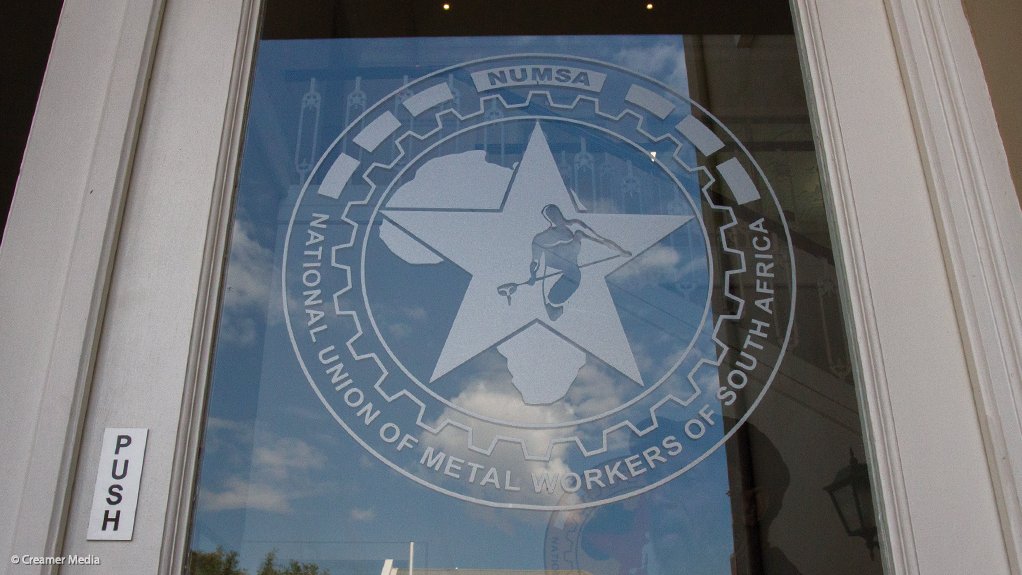/ MEDIA STATEMENT / The content on this page is not written by Polity.org.za, but is supplied by third parties. This content does not constitute news reporting by Polity.org.za.
The National Union of Metalworkers of South Africa (NUMSA) met with Eskom management under the auspices of the Central Bargaining Forum (CBF) for what was supposed to be the fourth round of wage talks. Talks were set down for the 21st and the 22nd of June. NUMSA and other unions submitted their revised demands and the expectation was that we would engage in a final round.
However, after NUMSA made its opening remarks, instead of engaging, Eskom management responded by declaring a dispute and then it walked out of the venue. NUMSA simply asked the question;
“Why is Eskom taking money meant for workers, and using it to pay billions to diesel suppliers, owners of coal contracts and Independent Power Producers (IPP’s)?” Eskom refused to respond to the question. Instead, it staged a walkout.
NUMSA is shocked and dismayed that the Eskom management under its GCEO Andre De Ruyter, has stooped so low as to collapse central bargaining, because it refuses to account for corrupt coal and IPP contracts that are being paid for through tax payer money. We have repeatedly requested that Eskom disclose in full the nature of these contracts, who are the beneficiaries, and their value, but they have refused.
We successfully demonstrated to the Central Bargaining Forum last week that Primary energy costs were collapsing Eskom. We were able to show that Eskom can afford to pay workers increases, but they choose not to. De Ruyter and the board are taking away workers benefits and wages to fund dirty procurement contracts. Eskom has refused to make any counter offer on any of our demands simply claiming they are "unaffordable" when they have not provided any financial statements to back this up. This is what we presented to CBF:
1. Workers’ wages do not affect Eskom’s balance sheet negatively - There is an institutional refusal by Eskom to reduce the cost drivers at the entity. There are other costs that are responsible for the entity’s spiraling debt levels. Over the past four years, the bargaining unit employees, (28 300 employees in total), wage costs remained flat between R16,9bn and R17.4bn, at most increasing by 2,3%. During FY21/22, despite the unilateral implementation of 1,5% increase on the bargaining unit, total costs declined by R483 million.
2. Primary energy costs are collapsing Eskom - In comparison the cost of Primary energy has gone up. Primary energy is a combination of coal costs, the cost of Independent Power Producers (IPP’s) and the cost of diesel for the Open Cycle Gas Turbines (OCGT’s). Primary energy costs increased from R85 billion in 2017/18 to R116 billion for the 2021/22 financial year. That is a R31 billion increase over the past four years. Interim results released on the 15 December 2021 have forecast a further R12 billion increase from R116 billion to R128 billion for the financial year ending 2022.
3. Eskom bailed out Duvha Seriti/South32 but refuses to bail out employees - On its own, the Duvha Seriti/South32 Coal contract increased by 104%, from R269,80 per ton to R550 per ton translating to R8,4 billion increase over four years. Eskom cited financial distress of Seriti/South32 emanating from the operational costs (which includes labour costs), as the reason to grant this exorbitant increase. But, for selfish reasons, the Eskom management of De Ruyter, does not want to respond to its own employees who are in dire financial distress by offering a meaningful increase.
4. Eskom management is inefficient and continues to overspend – Eskom overspent on diesel OCGT’s by whopping R9 billion for the 2021/22 financial year. The total costs spent on diesel powered OCGT’s (Eskom and IPPs), amounts to R12.6bn in one single year. This happened while NERSA limited the costs to R3.5bn since it is financially unsustainable to use OCGT’s extensively. These costs have exceeded the approved costs by NERSA by a whopping 356%. In Eskom’s admission, the extensive use of OCGT’s beyond the NERSA approval to alleviate generation plant constraints, is financially unsustainable – and has direct and substantial impact on Eskom’s profitability. Eskom continues to overspend on Diesel OCGT’s. As of 5 June 2022, Eskom has already spent approximately R5bn during the first two months of financial year 2022/2023. This then begs the question, who is benefitting from these diesel contracts because since the new board took over in 2018, Eskom has spent an eye-watering R43 billion on OCGT’s.
The Eskom board and its management have no credibility. They are complicit in a new form of state capture, where they actively steal from workers, in order to benefit corrupt cronies who are politically connected to the governing ANC. This is why there is a refusal to deal with Eskoms cost drivers. Workers are being used as sacrificial lambs to fund corruption and looting that is taking place under the “New Dawn”. They walked out because they do not want to be held accountable for their actions. We must not be surprised if Eskom imposes a below inflation increase again, as it did last year. NUMSA will be consulting members and we will also be engaging other union leaders on a way forward.
Aluta continua!
The struggle continues!
Issued on behalf of NUMSA General Secretary Irvin Jim
EMAIL THIS ARTICLE SAVE THIS ARTICLE ARTICLE ENQUIRY
To subscribe email subscriptions@creamermedia.co.za or click here
To advertise email advertising@creamermedia.co.za or click here











